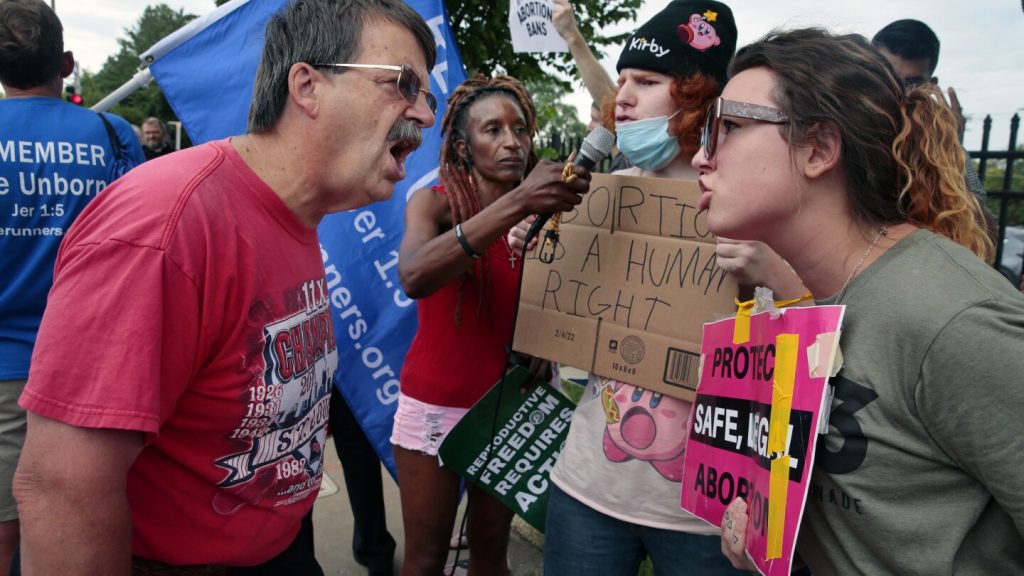Abortion and reproductive rights have emerged as central issues in the races for president, governor, and the state Supreme Court in North Carolina. With the state holding more moderate abortion restrictions compared to other Southern states, the outcome of these elections could have a significant impact on the future of reproductive rights in the region. Justice Allison Riggs, a Democrat running for reelection, is focusing heavily on the issue and highlighting her support for reproductive rights. Her Republican opponent, Court of Appeals Judge Jefferson Griffin, has accused Riggs of violating judicial standards by discussing potential issues that could come before the court.
The North Carolina race is part of a larger trend where abortion is fueling expensive campaigns for Supreme Court seats in several states. Groups on both the right and left are investing heavily in reshaping courts that could have a decisive role in legal battles over abortion, reproductive rights, voting rights, redistricting, and other contentious issues. The 2022 decision by the U.S. Supreme Court overturning constitutional abortion protections has transformed state high court races, with experts noting the increased importance of these courts in deciding major cases previously expected to go to the U.S. Supreme Court.
Thirty-three states are holding elections for 82 Supreme Court seats in the current cycle, following record-breaking spending in judicial races in Wisconsin and Pennsylvania the previous year. Groups on the left, such as the American Civil Liberties Union, Planned Parenthood, and the National Democratic Redistricting Committee, have significantly increased their spending on state court races. These groups are focusing on key battleground states like Montana, Michigan, North Carolina, Ohio, and Texas, where court decisions could have a lasting impact on issues like abortion rights and redistricting efforts.
In Michigan, two Supreme Court seats are up for election, with Democratic-backed justices currently holding a majority. Justice Kyra Harris Bolden is defending her seat against a Republican-backed challenger, while another seat being vacated by a Republican justice is contested by a Republican state representative and a Democratic nominee. Abortion rights are a significant issue in these races, with candidates framing the elections as crucial to defending reproductive rights in the state, despite Michigan’s existing protections for abortion in the state constitution.
The most contentious races are in Montana, where the Supreme Court has faced criticism from GOP lawmakers over rulings on abortion and voting rights. Progressive groups are backing candidates who support privacy rights, including the right to obtain pre-viability abortions. On the other hand, conservative groups are portraying these candidates as too liberal and tying them to national Republican messaging, including debates over transgender athletes in women’s sports. The Republican State Leadership Committee and other conservative entities are also investing heavily in state Supreme Court races in several states.
In states like Texas, where Republicans currently hold all Supreme Court seats, progressive groups are making efforts to unseat GOP justices who were involved in upholding the state’s abortion ban. Despite facing challenges in traditionally conservative states, these groups are running digital ads and mobilizing grassroots efforts to support candidates who uphold reproductive rights. In North Carolina, Justice Allison Riggs continues to campaign on abortion rights, facing criticism from Republicans who claim she is violating judicial ethics. However, Riggs maintains that she is sharing her values with voters without indicating how she would rule in specific cases, emphasizing the importance of an informed electorate in a functioning democracy.


